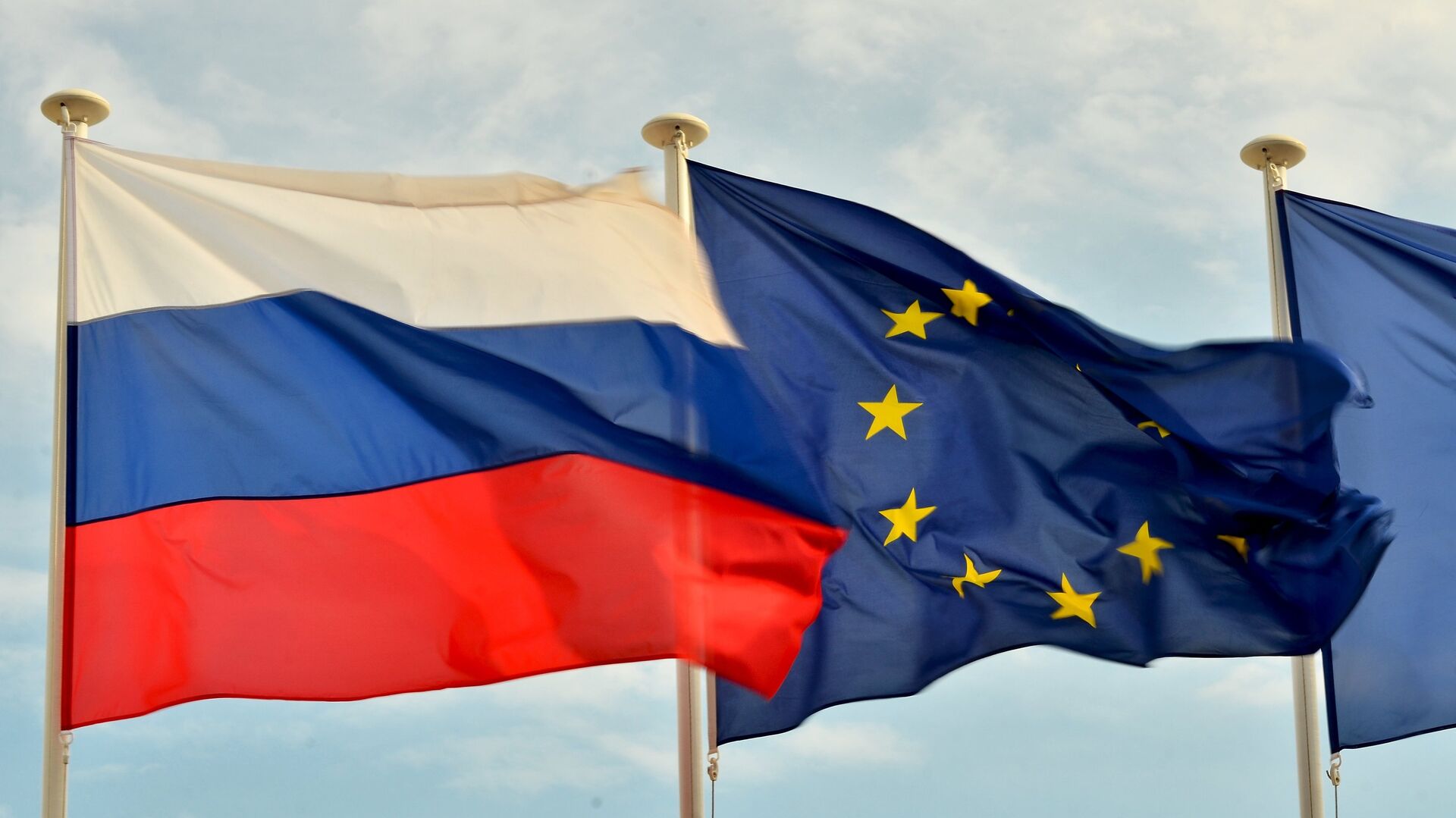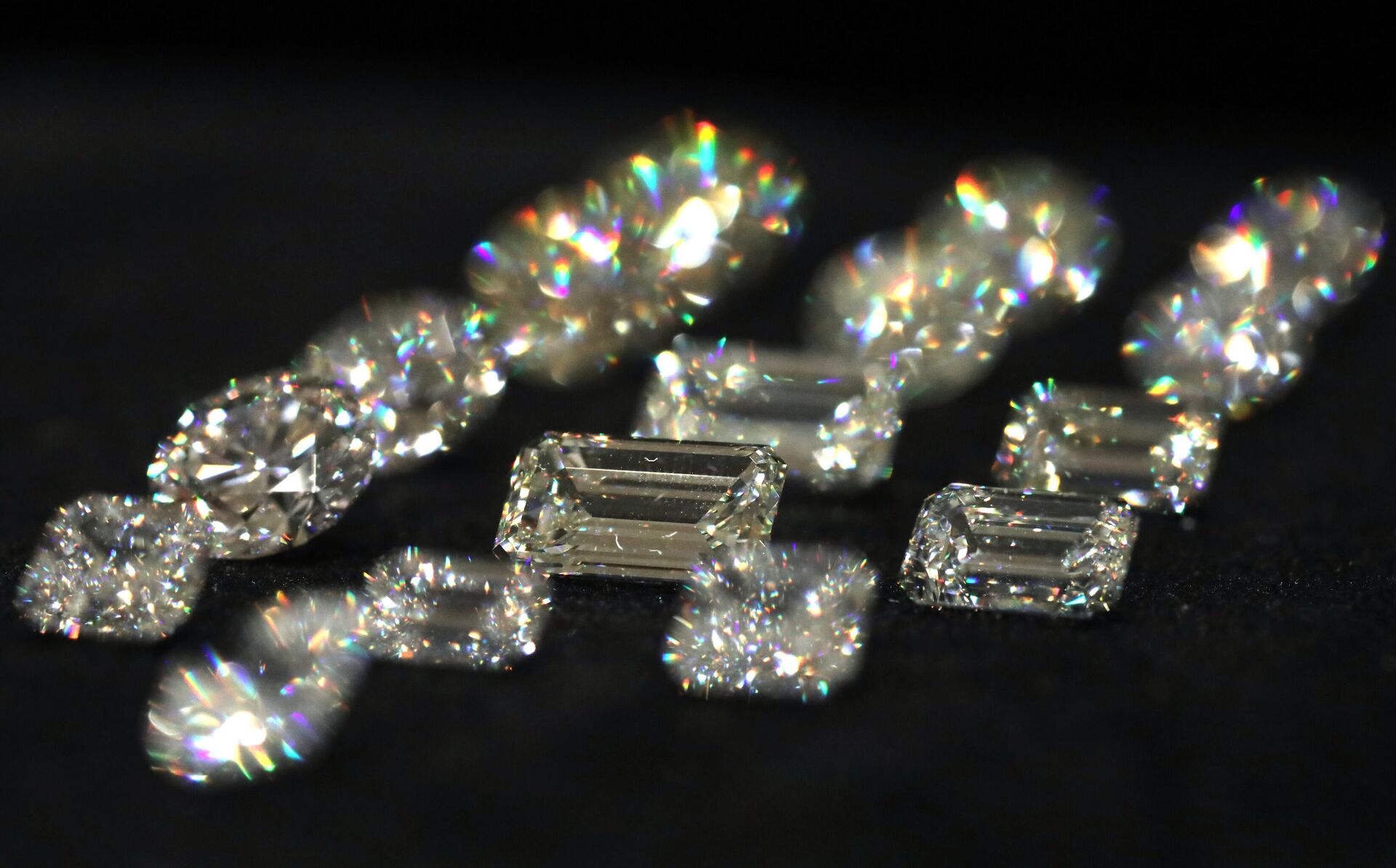https://sputnikglobe.com/20221019/key-sectors-reportedly-exempted-from-eus-anti-russia-sanctions-amid-covert-lobby-efforts-1102066120.html
'Key' Sectors Reportedly Exempted From EU's Anti-Russia Sanctions Amid Covert 'Lobby' Efforts
'Key' Sectors Reportedly Exempted From EU's Anti-Russia Sanctions Amid Covert 'Lobby' Efforts
Sputnik International
Since Russia launched its special military operation in Ukraine, the US and EU have imposed several rounds of economic sanctions against Moscow, including... 19.10.2022, Sputnik International
2022-10-19T10:52+0000
2022-10-19T10:52+0000
2024-06-08T13:08+0000
world
russia
ukraine crisis
uranium
alrosa
sanctions
european union (eu)
diamonds
https://cdn1.img.sputnikglobe.com/img/103409/19/1034091922_0:154:3093:1893_1920x0_80_0_0_a3f0a2ace9e0695d3927a87899c73125.jpg
Despite a much-touted sanctions war waged against Russia by the so-called collective West, some sectors remain conspicuously exempted from the penalties due to frantic lobbying, according to a report in The New York Times.Earlier in October, the European Council adopted the EU's eighth package of sanctions against Moscow over its special military operation in Ukraine, despite the continent increasingly reeling from exacerbated problems with energy markets, disruptions in supply chains, and soaring inflation.The European Union banned the trade of products in nearly 1,000 categories and hundreds of subcategories, with a near-total embargo on Russian oil, but some goods and sectors have been off the table due to intense back-room bargaining by some nations and private industries, according to the report. Furthermore, these "compromise" exemptions have been the price that the EU is forced to pay in its ardor to continue to prop up faltering consensus over the self-damaging sanctions.From Belgian-shielded trade in Russian diamonds and unimpeded shipping of the sanctioned country’s oil by Greek-owned tankers to continuing import of uranium from Russia by France and other countries, lobbying efforts are reportedly crucial to clobbering together unanimity on sanctions packages.The report stops short of assessing the "net impact" of these exemptions on the effectiveness of Europe’s sanctions effort.'Skirting Sacrifices'One of the “sacred cows” amid the sanctions campaign against Russia has been the diamond trade. Owing to efforts of Belgium and the broad diamond sector, the Russian diamond trade is something that has not been sacrificed amid the ongoing bid to “cripple” Russia’s economy, the outlet underscored. Lucrative exports of rough diamonds continue to the Belgian port of Antwerp – an acknowledged diamond hub.The trade is estimated to be worth an annual 1.8 billion euros ($1.75 billion) and has dodged consecutive rounds of the 27-member bloc’s sanctions, despite being mentioned as a target soon after the start of the Ukraine crisis.According to the report, while the Belgian government never asked the European Commission to exempt diamonds from any sanctions list, the more recent package of penalties targeting Russia begs to differ. A frantic intervention was purportedly undertaken when services involved in technical drafting of the sanctions committed a “coordination error." As the European Commission prepared the latest round of sanctions throughout September, it left diamonds off the list. However, the European External Action Service, which works with the commission to prepare sanctions, failed to get the exemption memo and included diamonds in its own draft listings, with Russian state-owned diamonds company Alrosa penned in, the report claimed.Alrosa, which is responsible for 90% of Russia's diamond mining capacity, is the source of about a third of all diamonds worldwide.Once Alrosa was put in the draft document, removing it became difficult. When the mistake came to light, Poland and other hard-line countries in the EU reportedly dragged out negotiations over the package, arguing that Alrosa should face sanctions. The lobbying incident was described as “farcical” by several diplomats involved in the proceedings and cited by the outlet.Exemptions regarding uranium exported from Russia for use in civil nuclear power production involve more complex lobbying by industries and services as they affect more than one country.The trade is worth 200 million euros ($194 million), with nuclear power plants in France, Hungary, Slovakia, Finland, and several other countries depending on Russian civilian uranium exports, emphasized the report, citing Greenpeace data. Supporters of the exemption reportedly argue against sacrificing the ability to generate electricity by operating nuclear power plants during an acute energy crisis for political gains.However, the most intense lobbying effort by diplomats was undertaken in a tough round of talks last May and June to exempt Greek shipping companies from the Russia oil embargo, said the report. After the US banned all imports of Russian oil and gas in March as part of America’s sanctions against Moscow, the EU’s July 21 package included a gradual phase-out of Russian oil. It provided for a complete import ban on all Russian seaborne crude oil as of December 5, 2022, and petroleum products as of February 5, 2023.Greek diplomats managed to ensure that the country’s tankers continued to transport Russian oil to non-European destinations. The report cited MarineTraffic shipping data platform as showing that over half of the vessels transporting Russia’s oil to countries like India and China were Greek-owned. Diplomats supporting the trade were cited as arguing that if the Greek shipping industry were to be pulled out of the business, others would step in. Furthermore, the Greeks said they would continue to transport Russian oil, but at a capped price. On October 7, the European Union in its package of sanctions set a framework for capping the price of Russian seaborne oil exports at a level coordinated by G7 allies. The measure will go into effect on December 5 for crude oil and on February 5 for refined petroleum products. Some EU countries, including Hungary, were excluded from such measures, as they import Russian oil through pipelines.The report comes as EU member-states have been increasingly unwilling to sacrifice their own interests to prop up the Kiev regime. While the anti-Moscow sanctions have failed to cripple Russia’s economy, they have backfired against the countries that imposed them, resulting in a steep increase in fuel prices and soaring inflation, hurting Europe more than Russia.
https://sputnikglobe.com/20221013/russian-economy-emerging-from-recession-despite-western-sanctions-british-newspaper-reports-1101807542.html
https://sputnikglobe.com/20220824/us-will-be-unable-to-replace-enriched-uranium-supply-from-russia---energy-dept-1099961347.html
https://sputnikglobe.com/20221016/russias-gazprom-if-europe-imposes-price-cap-gas-supplies-will-be-halted-1101897800.html
russia
Sputnik International
feedback@sputniknews.com
+74956456601
MIA „Rossiya Segodnya“
2022
News
en_EN
Sputnik International
feedback@sputniknews.com
+74956456601
MIA „Rossiya Segodnya“
Sputnik International
feedback@sputniknews.com
+74956456601
MIA „Rossiya Segodnya“
russia, ukraine crisis, uranium, alrosa, sanctions, european union (eu), diamonds
russia, ukraine crisis, uranium, alrosa, sanctions, european union (eu), diamonds
'Key' Sectors Reportedly Exempted From EU's Anti-Russia Sanctions Amid Covert 'Lobby' Efforts
10:52 GMT 19.10.2022 (Updated: 13:08 GMT 08.06.2024) Since Russia launched its special military operation in Ukraine, the US and EU have imposed several rounds of economic sanctions against Moscow, including against the country’s oil and gas sectors. While the penalties were conceived in the hopes of crippling Russia’s economy, they have backfired against the countries that imposed them.
Despite a much-touted
sanctions war waged against Russia by the so-called collective West, some sectors remain conspicuously exempted from the penalties due to frantic lobbying, according to a report in The New York Times.
Earlier in October, the European Council adopted the EU's
eighth package of sanctions against Moscow over its special military operation in Ukraine, despite the continent increasingly reeling from
exacerbated problems with energy markets, disruptions in supply chains, and soaring inflation.
The European Union banned the trade of products in nearly 1,000 categories and hundreds of subcategories, with a near-total embargo on Russian oil, but some goods and sectors have been off the table due to intense back-room bargaining by some nations and private industries, according to the report. Furthermore, these "compromise" exemptions have been the price that the EU is forced to pay in its ardor to continue to prop up faltering consensus over the self-damaging sanctions.
From Belgian-shielded trade in Russian diamonds and unimpeded shipping of the sanctioned country’s oil by Greek-owned tankers to continuing import of uranium from Russia by France and other countries, lobbying efforts are reportedly crucial to clobbering together unanimity on sanctions packages.
The report stops short of assessing the "net impact" of these exemptions on the effectiveness of Europe’s sanctions effort.
“Ultimately, this is the price of unanimity to hold together this coalition, and in the grander scheme of things the sanctions are really working. We would love to have everything included, diamonds and every other special interest hit, but I am of the opinion that, if sparing them is what it takes to keep everyone together, so be it,” Jacob Kirkegaard, a senior fellow in the Brussels office of the research group the German Marshall Fund was cited as saying.
One of the “sacred cows” amid the sanctions campaign against Russia has been the diamond trade. Owing to efforts of Belgium and the broad diamond sector, the Russian diamond trade is something that has not been sacrificed amid the ongoing bid to “cripple” Russia’s economy, the outlet underscored. Lucrative exports of rough diamonds continue to the Belgian port of Antwerp – an acknowledged diamond hub.
The trade is estimated to be worth an annual 1.8 billion euros ($1.75 billion) and has dodged consecutive rounds of the 27-member bloc’s sanctions, despite being mentioned as a target soon after the start of the Ukraine crisis.
According to the report, while the Belgian government never asked the European Commission to exempt diamonds from any sanctions list, the more recent package of penalties targeting Russia begs to differ. A frantic intervention was purportedly undertaken when services involved in technical drafting of the sanctions committed a “coordination error." As the European Commission prepared the latest round of sanctions throughout September, it left diamonds off the list. However, the European External Action Service, which works with the commission to prepare sanctions, failed to get the exemption memo and included diamonds in its own draft listings, with Russian state-owned diamonds company Alrosa penned in, the report claimed.
Alrosa, which is responsible for 90% of Russia's diamond mining capacity, is the source of about a third of all diamonds worldwide.
Once Alrosa was put in the draft document, removing it became difficult. When the mistake came to light, Poland and other hard-line countries in the EU reportedly dragged out negotiations over the package, arguing that
Alrosa should face sanctions. The lobbying incident was described as “farcical” by several diplomats involved in the proceedings and cited by the outlet.
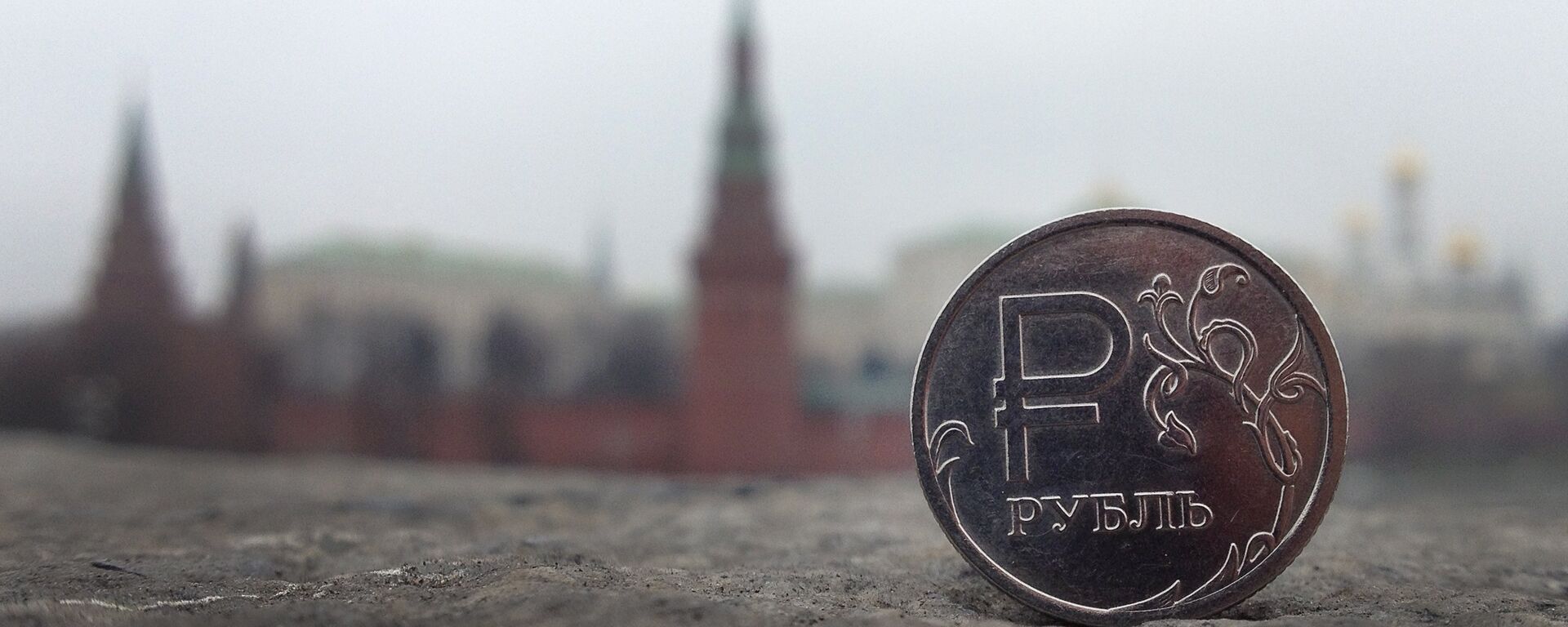
13 October 2022, 11:31 GMT
Exemptions regarding
uranium exported from Russia for use in civil nuclear power production involve more complex lobbying by industries and services as they affect more than one country.
The trade is worth 200 million euros ($194 million), with nuclear power plants in France, Hungary, Slovakia, Finland, and several other countries depending on Russian civilian
uranium exports, emphasized the report, citing Greenpeace data. Supporters of the exemption reportedly argue against sacrificing the ability to generate electricity by operating nuclear power plants during an acute energy crisis for political gains.
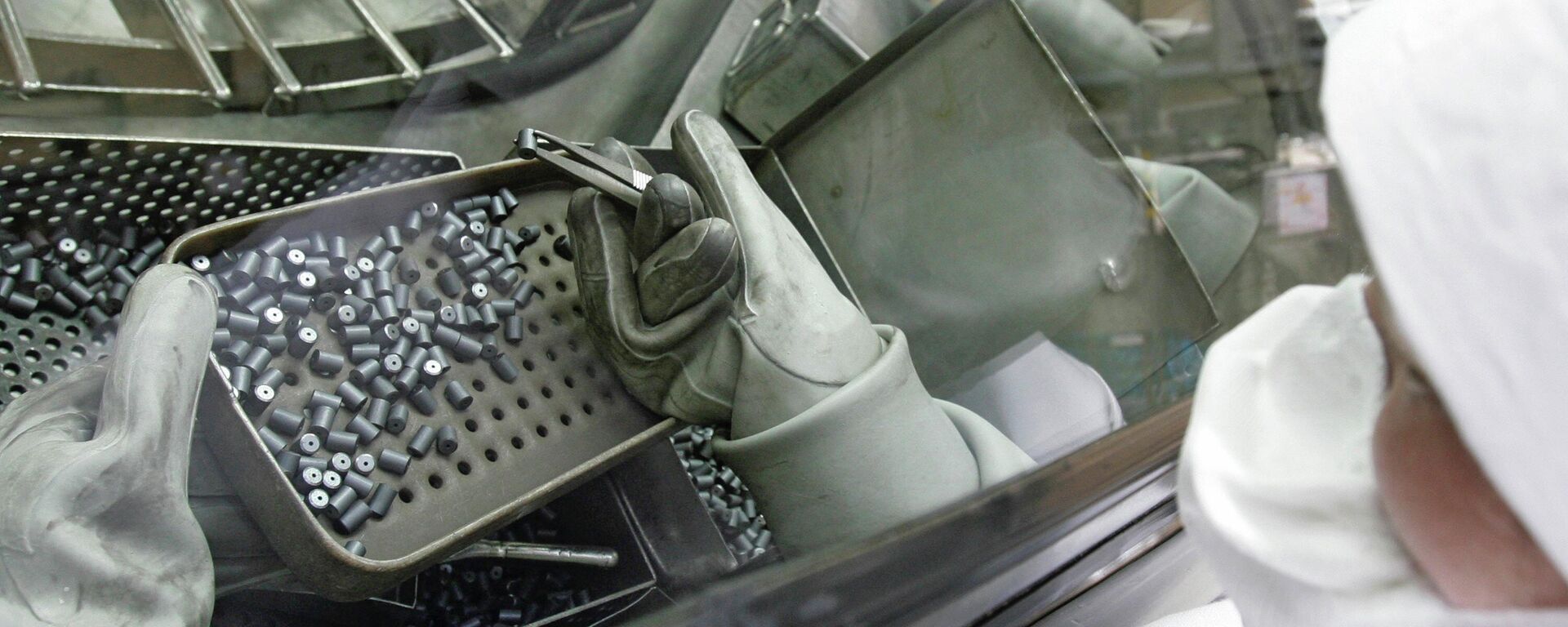
24 August 2022, 21:22 GMT
However, the most intense lobbying effort by diplomats was undertaken in a tough round of talks last May and June to exempt Greek shipping companies from the Russia oil embargo, said the report.
After the US banned all imports of Russian oil and gas in March as part of America’s sanctions against Moscow, the EU’s July 21 package included a gradual phase-out of Russian oil. It provided for a complete import ban on all Russian seaborne crude oil as of December 5, 2022, and petroleum products as of February 5, 2023.
Greek diplomats managed to ensure that the country’s tankers continued to transport Russian oil to non-European destinations. The report cited MarineTraffic shipping data platform as showing that over half of the vessels transporting Russia’s oil to countries like India and China were Greek-owned. Diplomats supporting the trade were cited as arguing that if the Greek shipping industry were to be pulled out of the business, others would step in. Furthermore, the Greeks said they would continue to transport Russian oil, but at a capped price. On October 7, the European Union in its package of sanctions set a framework for
capping the price of Russian seaborne oil exports at a level coordinated by G7 allies. The measure will go into effect on December 5 for crude oil and on February 5 for refined petroleum products. Some EU countries, including Hungary, were excluded from such measures, as they import Russian oil through pipelines.
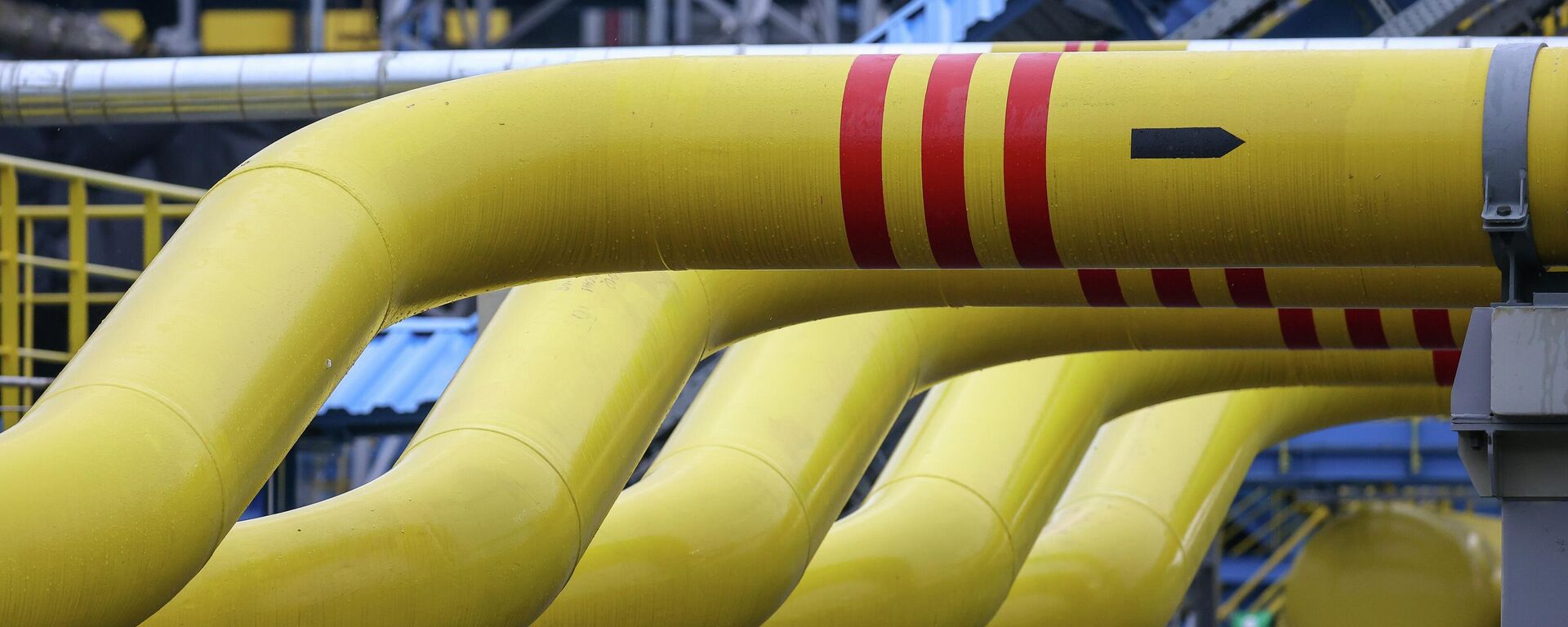
16 October 2022, 10:16 GMT
The report comes as EU member-states have been increasingly unwilling to sacrifice their own interests to prop up the Kiev regime. While the anti-Moscow sanctions have failed to cripple Russia’s economy, they have backfired against the countries that imposed them, resulting in a steep increase in fuel prices and soaring inflation,
hurting Europe more than Russia.
